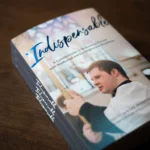Back in October, the American Society for Reproductive Medicine (ASRM) published a new definition of infertility. The definition changed from just trying for a kid and not having one to now also include sexual identities that are by nature not open to producing children. This will look at the new definition compared to the old and then offer some moral and spiritual analysis.
A New Definition of “Infertility”
In general and historically, infertility has been defined along the way the CDC still defines it:
In general, infertility is defined as not being able to get pregnant (conceive) after one year (or longer) of unprotected sex. Because fertility in women is known to decline steadily with age, some providers evaluate and treat women aged 35 years or older after 6 months of unprotected sex.
The new ASRM definition is:
“Infertility” is a disease, condition, or status characterized by any of the following:
- The inability to achieve a successful pregnancy based on a patient’s medical, sexual, and reproductive history, age, physical findings, diagnostic testing, or any combination of those factors.
- The need for medical intervention, including, but not limited to, the use of donor gametes or donor embryos in order to achieve a successful pregnancy either as an individual or with a partner.
- In patients having regular, unprotected intercourse and without any known etiology for either partner suggestive of impaired reproductive ability, evaluation should be initiated at 12 months when the female partner is under 35 years of age and at six months when the female partner is 35 years of age or older.

The third point is essentially the prior standard definition. The first point is likely fine too, as some other signs might indicate infertility like if a young woman had her uterus removed for legitimate medical reasons (ex: it was cancerous).
The real difficulty is the second point, which is about situations where the person is intentionally not doing the type of acts that might produce offspring. This seems to be opening it up so people in same-sex relationships or sterilized by transgender surgery are medically infertile. Most news coverage that mentions this change indicated that the intent was to be more inclusive for LGBTQIA+ people.
This second point also includes using donor gametes (egg &/or sperm) or embryos. This is a form of using other people and against their dignity.
The Cross of Infertility
Infertility is a real cross. I’ve known multiple Catholic couples who wanted to have kids but could not. Some had these issues later resolved, while others ended up adopting or just not having kids. We need to be very sensitive to these couples. I’ve heard many talk about how much it hurt that people said things that questioned their Catholicism, which added to the pain. We need to avoid words that would imply this.
Often, medical things can assist natural reproduction, and those are allowed. In Vitro Fertilization and other means that replace reproduction, however, are not allowed. Couples who struggle will be tempted to use these latter means and make babies in a petri dish, and we need to help them see the beauty of marriage even with this cross to dissuade them from such immoral options.
Accompanying those with this cross is important.
Moral Issues
Several moral issues come up with defining infertility this way. I will note four.
First, the ASRM is largely made up of those who make money from people – who cannot make babies naturally – making babies artificially. Expanding the definition of a key term means more people should use their services. I don’t know if economic factors played a big factor, but we can’t ignore them.
Second, “disease” or “condition” is about interrupting normal functioning. Nothing about two men or two women sexually pleasuring each other in normal function would result in offspring. Millions of humans have had sexual relations with someone of the same sex and a child has never resulted because it is not normal functioning.
Third, given that they call infertility a “disease,” and intentional sterilization because one feels like they are in the wrong body, that would be another reason to restrict or ban “bottom” sex reassignment surgery: we should not do a surgery that causes a disease in the person.
Fourth, there is also an issue of the expansion of everything to match an LGBTQ+ ideology. There are individual people who are sexually attracted to others of the same sex, and we should accompany them. But there is an ideology present in decisions like this where the truth is distorted to accommodate their choices. Yes, LGBTQ+ relationships are usually infertile, but infertility refers to the inability to achieve conception naturally, not the inability based on not doing the type of acts that might produce children.
Conclusion
This is not a good definition. Obviously, much of what such doctors do is already immoral (IVF, donor sperm & egg, etc.), but this is an attempt to change reality and truth. We must stand up to that. We must accompany those attracted to others of the same sex and those with infertility but we can never deny truth in doing so.










[…] Open the full article on the frmatthewlc.com site […]
Accompany or accommodate? Looking at the definitions both work depending on your meaning, and “accompany” is appropriate for a pastoral point of view, I’m just not used to seeing it used in this context.
“but this is an attempt to change reality and truth. We must stand up to that.”
Yes, and yes. It’s one thing to broaden an umbrella term to include more things under it, it’s another to do so in a way that calls dissimilar things the same. And yes, I don’t see what’s gained here anyway. Everyone knows that exclusively homosexual people can’t have children without something like rape being entailed. Just like a fertile heterosexual person monogamously committed to an infertile person. Calling exclusively homosexual people, or bisexuals in a committed homosexual relationship, “infertile” not only doesn’t add anything, but it’s medically problematic for the genuinely infertile homosexual men and women.
I sincerely hope that if this redefinition continues that appropriate adjectives are consistently used by doctors and especially fertility specialists to make it very, very clear what everyone is talking about.